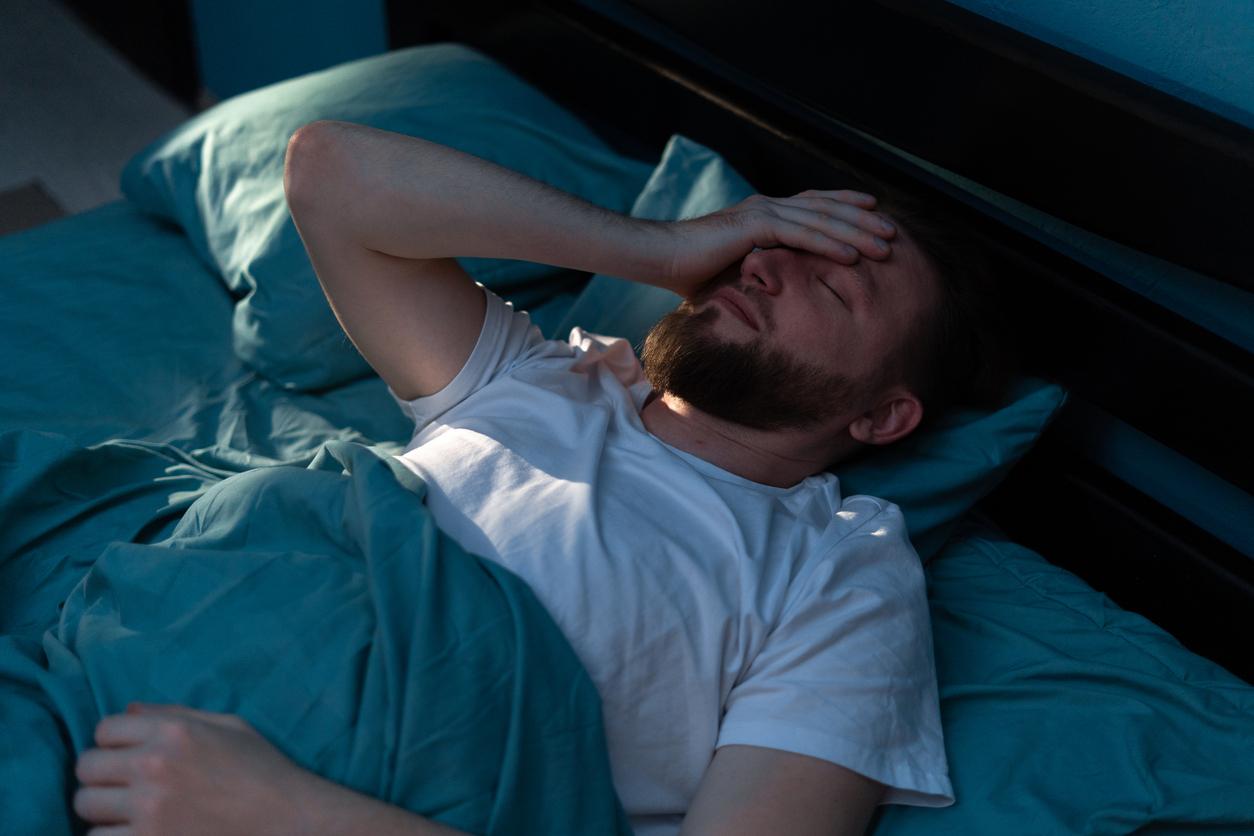Sleep disturbances increase risk of suicide and homicide, study finds.

- Sleep disturbances increase the risk of suicide and homicide.
- Between two and three in the morning, these risks are five and eight times higher respectively.
- Young people, alcohol drinkers and those in relationship conflict are the most vulnerable.
Nearly 19% of suicides and 36% of homicides occur at night, according to a study published in the journal The Journal of Clinical Psychiatry. “Disrupted sleep can seriously impair rational thinking, which can lead to impulsive behavior in vulnerable individuals“, explains Andrew Tubbs, one of the authors, in a press release.
Risk of suicide five times higher at night
Researchers from the Department of Psychiatry at University of Arizona College of Medicine in Tucsonin the United States, highlight several factors to explain these figures, including age, alcohol consumption and relationship conflicts.
“Our analysis of 15 years of data in the United States showed that there is a five times greater risk of suicide and an eight times greater risk of homicide between 2 and 3 a.m., taking into account the number of people awake and capable of suicide or homicide.“, continues Andrew Tubbs. To arrive at these results, the researchers studied data collected over fifteen years from more than 78,000 suicides and 50,000 homicides.
According to the researchers, waking up at night impairs the brain’s complex decision-making functions and reduces rational thinking in favor of negative mood, which is at its peak. Positive mood, on the other hand, is at its lowest and the analysis of the risk/reward balance is distorted.
Identify predisposed people and improve their sleep
“Few studies have examined trends in violent crime by time of day, says Andrew Tubbs. Future work could better analyze what’s happening in the brain to identify people who are predisposed to these kinds of risks and see if strategies to improve sleep and reduce nighttime waking can help reduce the risks and prevent these tragic outcomes.”
The researchers identified populations at higher risk than others. These included adolescents, young adults, people who had consumed a lot of alcohol and those in conflict with their partners. Those aged 15-24 had a risk of nighttime suicide three times higher. The risk of homicide did not vary according to age.
However, the researchers did not find any association between cannabis use or depression and these risks.
If you have sleep problems, it is best to talk to a general practitioner who will be able to advise you on the best possible treatment.
















